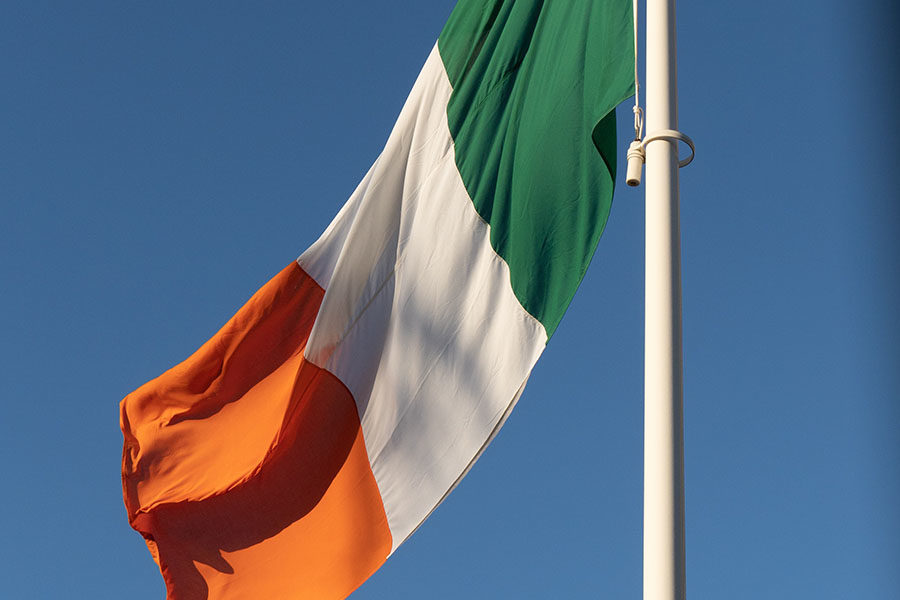Report raises concerns over underage gambling in Ireland

The report found that almost one in four 16-year-olds gambled in the past 12 months.
Ireland.- A new report has raised concerns about underage gambling in Ireland. The study is likely to increase the support for the restrictions on gambling advertising proposed under new legislation.
Entitled ‘Children and gambling – evidence to inform regulation and responses in Ireland’, the study found that almost one in four 16-year-olds in Ireland gambled for money in the prior 12 months. Nearly a quarter of those said they struggled to control their gambling.
Published by the Institute of Public Health (IPH) and TobaccoFree Research Institute Ireland (TFRI), the report is based on the responses of 1,949 secondary school students. Under Irish law, people must be aged 18 to legally gamble, but 22.9 per cent of 16-year-olds surveyed said they had gambled for money in the last 12 months (28.2 per cent of boys and 17.9 per cent of girls).
Of those who had gambled, 60.7 per cent said they had engaged in sports betting, 51.8 per cent in lottery play, 41.3 per cent gambled on cards or dice and 36.9 per cent on slot machines. Some 10.3 per cent of those who gambled said they experienced excessive gambling, and 5.6 per cent showed signs of problem gambling, for example, lying about how much they spent.
The report found that 21.3 per cent had problems controlling their gambling, 19 per cent felt they needed to bet more money and 8.1 per cent lied to important people about how much they had gambled.
IPH director of policy Dr Helen McAvoy said the report demonstrated a need for intervention to protect young people. She said: “This report shows that when 16-year-olds in Ireland engage in gambling, quite a few of them run into difficulty. This is particularly the case for betting on sports and betting online and for boys.
“Gambling rates among this age group in Ireland are around the European average, highlighting the need for a public health approach to reduce gambling harms.”
IPH public health development officer Dr Ciara Reynolds added: “We hope the report findings will help to inform ongoing gambling reform in Ireland. The report highlights the need for further research on children and gambling in national surveys to build on our evidence and produce more focussed approaches to protect children from gambling-related harm.”
James Browne, minister for state with responsibility for law reform and youth justice described the report as “deeply troubling”. He said: “The findings of this report are deeply troubling and serve to highlight why we, as a society, must protect children and vulnerable citizens from the harms associated with gambling. Reforming gambling legislation and regulation in Ireland is a key commitment in our Programme for Government and Justice Plan, and has been one of my priorities as Minister.
“At its core, the Gambling Regulation Bill is a public health measure. A key focus of the Bill is to protect children from the widespread proliferation of gambling advertising across different forms of media. I expect that the Gambling Regulation Bill 2022 will complete its journey through the Oireachtas early next year, subject to the cooperation of both Houses.”
Overhaul of Irish gambling regulation
The Irish Gambling Regulation Bill proposes the creation of a new Irish gambling regulator, the Gambling Regulatory Authority, or Údarás Rialála Cearrbhachais na hÉireann, to licence and regulate the sector. Anne Marie Caulfield has been named the regulator’s chief executive officer designate.
The bill would amend Ireland’s Protection of Young Persons (Employment) Act 1996 to prohibit gambling operators from employing under 18s. The bill also proposes restrictions on gambling advertising, banning adverts on TV and radio between the hours of 5.30am and 9pm. However, the Irish horseracing sector has asked for an exception to be made for racing coverage.
Those representing Irish tracks, racehorse owners and trainers fear the ban could harm revenue and horse ownership in an industry that employs 30,000 people and generates €2.46bn a year. Racing TV, which has extended its agreement to screen Irish racing, says that the proposed ban could put the viability of its coverage in doubt.
See also:Irish lottery operator fined for self-exclusion breaches











